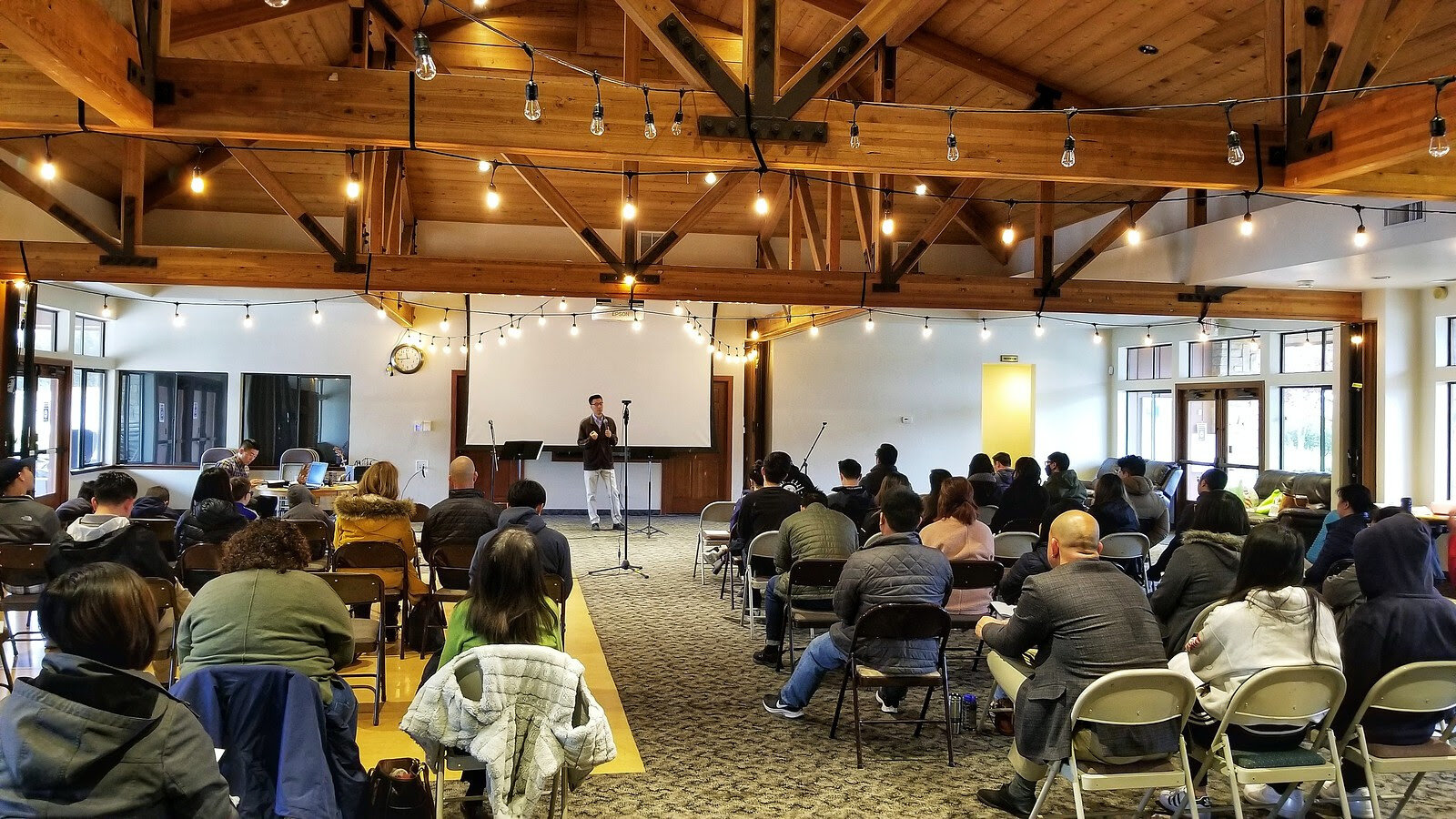Why We Baptize Infants
In the coming days the young child of one of our families will be baptized. The practice of baptizing infants might seem foreign to some of us. Many of our members have spent time in churches that only baptized those who were old enough to profess faith in Christ. So why does Indelible Grace Church baptize infants?
First, a very truncated explanation of the theological reasoning:
The account of God's covenant with Abraham in Genesis 15 and 17 is one of the foundational texts for the entire storyline of the Bible. In it God promises an everlasting covenant, not only with Abraham and his immediate family, but with all his descendants.
It's important to point out that the promise doesn't belong only to Abraham and his immediate offspring. Galatians 3:7 tells us "it is those of faith who are the sons of Abraham. ” That means that you and I - if we have placed our faith in Christ - are under the same promise that was given some 5000 years ago. If this is true, then the faith that the Old Testament believers expressed is the same type of faith that New Testament believers express; believers in both eras receive God's promise by grace through faith (Genesis 15:6, Ephesians 2:8-9).
In the area of baptism, what differentiates Indelible Grace Church from our Baptist friends is our understanding of the relationship between circumcision in the Old Testament and baptism in the New Testament. There is a continuity between the promise that God made with Abraham and the promise he makes to New Testament believers. And the sign of God's covenant with Abraham in the Old Testament - circumcision - functions in the same way as the sign of God's covenant with Abraham's descendants in the New Testament - baptism. (See Colossians 2:11-12)
In receiving the covenant promise from God, the sign of faith that Abraham was to administer to himself and to his children was circumcision. To the children of Abraham, the circumcision was a sign of God's pledge to honor his promise to them when the conditions of the covenant - faith in God - were met. In the New Testament, baptism is administered as a sign of faith and a seal - a guarantee that God will honor his promise to the recipient.
The apostle Peter makes it clear that the promise belongs not only to professing adults, but also to their children. “Repent and be baptized every one of you in the name of Jesus Christ... For the promise is for you and for your children...” (Acts 2:38–39)
God makes the promise to the child who receives baptism. Though she may be too young to understand the promise, God still pledges to honor his promise to wash her clean of sins by the blood of Christ when she meets the conditions of the covenant - by placing her faith in Christ.
By being baptized, a child is not automatically saved. Nor is it guaranteed that she will ever come to faith in Christ. But when parents have their children baptized, they are claiming the covenant promises of God on their behalf. In effect, they're saying that they will raise their children as if the promise really does belong to them. And as long as the children are under the authority of their parents, they will be treated as a child of the covenant community.
In baptism, the parents are committing to spiritually nurture their children and teach them to trust God and believe in Christ; their home will be built on the promises of God. The goal is that the children would come to know and love the promises of God so much that they will one day receive the promise for themselves.
This is grace! That God freely offers to us what we cannot earn - or even fully understand.
Pastor Wade
To learn more about infant baptism, I recommend the following resources:
Why Do We Baptize Infants?, by Bryan Chapell
Infant Baptism, by John Currie
Infant Baptism: How My Mind Has Changed, by Dennis Johnson
A Reflection on Prayer
[This is a lightly edited transcript of a devotional shared by David Yi (one of our ruling elders) during the congregational meeting on February 26, 2023]
Our church has been centered around the topic of prayer, and I thought to share some of my personal reflections and how they intersect with this season at IGC.
As a relatively cautious person, and in no attempt to say anything “prophetic”, I will say this:
Right now, I’m convinced that God is starting to do something in our church. Something different. Something powerful. It’s not uncommon in a community of faith – whether that’s your family, or your group of friends, or a local church – for God to demonstrate his power and grace after an intense season of hardship and sorrow. We’ve seen that pattern throughout scripture. By God’s grace, I believe we can enter into that kind of season together. I’ve seen things in our worship services. I’ve seen things in our CG. I’ve seen it in the conversations I’ve recently had with friends in our church, in the ways God is moving in their hearts and lives. I see it in our session as we are finding new reasons to praise God and give thanks to him for his faithfulness to us. I don’t believe these are random. I believe they are part of a greater work of God at IGC. This is not to say that all people at our church is experiencing such things. It’s also not to say that things are so great at our church. We still need healing and growing. Maybe you are some someone who in pain, or struggling, or feeling distant from God. But here and there, I have noticed some cracks, and beams of renewal and the light of God’s grace starting to peek through.
But here’s the thing church: We need to pray. We must be absolutely committed to prayer during this season. There are no movements of renewal, revival, or repentance without prayer. When we pray, the Holy Spirit can surprise us with unexpected things. During prayer in one of our recent CG meetings someone in our group started praying for another person who had been struggling and tears were shared among us. When we pray, the Spirit can convict our hearts to confession and repentance. When we pray, the Spirit can enter us into a season of putting to death things in our lives that hinder us from Jesus and replace it with new springs of life. Why can’t we have a revival at IGC? Why can’t we enter into a season where our sin becomes more bitter, and Christ becomes sweeter? Why can’t we experience this throughout the church, even before we know the name of our next senior pastor? Why not? When I texted a brother last week about desiring more from the Lord for our church, he texted me back these two words: “Ask boldly.” Yes, I must ask boldly. We all must ask boldly.
Here’s the thing though. As convinced as I am that we need to enter into a season of intense prayer, I look at my prayer life and realize how embarrassed I am at how weak and underdeveloped it is. I’ve examined it carefully. I’ve been talking to my mentor about my prayer life, and I’ve realized how unbalanced I am in my spiritual life. In Acts 6, the church raised up deacons so that the apostles could focus on the two priorities of the church – prayer and the ministry of the Word. Like a guy who only bench presses and does bicep curls at the gym and never trains his legs and resembles the physique of SpongeBob, I realize how imbalanced I am. Not enough prayer. Also, as someone who is passionate about discipling others, I’ve realized of all the spiritual disciplines I’ve passed onto others for their Christian growth, I’ve not transferred a prayer life very well. The reason is pretty simple – because I haven’t modeled it from my own life.
There might be lots of factors (ahem, excuses) for this. I think about all the Christian conferences I’ve been to and how 90% of them are someone talking, there’s about 8% singing, and maybe 2% prayer. I think about how in praying meetings we often spend 80% of the time talking and sharing, and maybe 20% of the time praying, if even that. I think about my Korean immigrant church upbringing, where prayer was so powerful and rich, and how later in English ministry contexts, as we moved away from our parents’ way of faith, we even threw out their rich tradition of prayerfulness (which we should have held onto for dear life). I think about how in our general theologically Reformed camp (like us in the PCA), it feels like sometimes its more about learning theology than practicing doxology (worship). At times it seems like we’re almost afraid of spiritual experiences. I think about the culture of the Bay Area and how much we value acquisition of information. These all may be contributing factors for sure. But in the end, I know don’t pray because my pride, my spiritual immaturity, and even my unbelief in the power of prayer. I am repenting of this.
In thinking through this, I started to feel riddled with guilt and shame about my prayer life. I started to feel immense conviction that I’m supposed to be praying more and I’m not. How am I going to lead our CG in prayer with my weak prayer life? How am I supposed to love others if I don’t find more time to pray for and with them? Why is prayer so hard? I feel bad about this. Do you guys feel this at all?
As I started to work this out, the Holy Spirit led me to start thinking about the apostles. You know, the prayers warriors who led the early church. These guys were so devoted to prayer. I started re-reading Acts and marking all the places they were praying together. It was amazing. They prayed constantly (1:14, 6:4, 10:9, 12:5, 14:23). And in so many places, it said they were “devoted” to prayer.
I soon remembered these were the same guys who, the night that Jesus was betrayed, kept falling asleep, and failed to pray even after the Lord Jesus specifically asked them – pleaded with them multiple times – to pray and keep watch. Do you remember this story?
Some of these guys were fisherman. They were used to fishing all night long for their work. And yet when Jesus, their Lord and friend who spent 3 years of his life with them, is in such sorrow and agony that he is sweating drops of blood and falling to his knees in prayer, asks them to be a friend to pray and keep watch… They can’t. do. it. They can stay up to fish. Not to pray. This story did not help my guilt. It only added to it.
But here’s where I was comforted by our Lord Jesus. Perhaps you’ll be comforted by this as well. Because unlike us, Jesus, who was full of sorrow and to the point of death, actually prays. Luke 22:44 says this “And being in agony he prayed more earnestly; and his sweat became like great drop of blood falling to the ground.” As we are in the season of Lent, where we reflect more on the sufferings of our Lord Jesus, picture this for a moment. And the next verse, verse 45, it says that Jesus finds his disciples sleeping. [Luke graciously attributes their slumber to an exhaustion from sorrow. Have you ever been exhausted from sorrow and felt like sleep is all you could do?]. How does our Lord Jesus respond? He doesn’t give a stern word of rebuke. He doesn’t say “You weak, faithless fools. I’m about to die for you! And you’re here sleeping? You can’t even say a few words of prayer?” No. Luke tells us Jesus simply says to his brothers, with love and tenderness and concern, “Rise and pray that you may not enter into temptation.” Because Jesus knew how much the disciples would have to endure and he was urging them to pray, to help them. But they fail to pray, Jesus is betrayed and all the disciples all flee.
But our Jesus… what did he do? He prayed. He asked God “not my will but yours be done.” And with those prayers, he went to the cross and died for prayerless, sinful, unfaithful disciples like us. Even on the cross, with his dying breath, he prayed to God to ask him “forgive them for they know not what they do.”
I imagine the disciples never forgot how their Lord prayed, and even prayed on the cross. I imagine the disciples never forgot the night they fell asleep and failed to pray. Yet their Lord still died for them. What was the effect of this to their life and ministry?
Just weeks after this event, after Jesus resurrected and ascends, Luke tells us in Acts 1 that the same disciples were back at the mount of Olives – the same mount of Olives with the garden where Jesus was praying, and they were sleeping. They were back at the scene of the crime. And they come down from that same mountain, they go into the city of Jerusalem together. Acts 1:14 says “all these with one accord were devoting themselves to prayer…” They were changed by Jesus. Those prayers in Chapter 1 were the prequel to the Holy Spirit’s anointing in Chapter 2, and then proceeds to record all the mighty things God’s Spirit did through the church.
That same Spirit is powerfully working at our church right now. Listen church! We need to pray. I know it’s hard. I know we may not be good at it. I know I’m undisciplined in my prayer. But Jesus isn’t done praying. Right now, Jesus is at the right hand of God, and Romans 8 says he’s interceding for us right now. He’s praying for us! In the same chapter, we are told that the Spirit himself intercedes for us when we don’t even know what to pray for!
I’ve been reading this wonderful book, A Praying Church, by Paul Miller (I urge you to read it). Dane Ortlund, who wrote the intro, writes this about the importance of prayer in churches – a timely word for IGC:
"A church with rich history, flawless music, powerful preaching, amazing childcare, a paid-off mortgage, and stellar attendance but sleepily operating out of the resources of the flesh instead of prayer is headed toward tragic inconsequentiality.
A church riddled with dysfunctions, embattled and beleaguered, unimpressive in preaching, off-tune musically, small in numbers, and without resources but quietly collapsing into the freefall of faith-fueled praying is a church that will bless this world in a thousand surprising ways and leave a mark that reverberates through eternity."
May our God grant IGC the gift of “collapsing into the freefall of faith-fueled praying”!
For Christ and his church. For his glory and our joy.
Tracy's Return from Maternity Leave
Hi everyone! As of January 9, I am officially back from my maternity leave. Nate and I are so grateful for the extended time I had to get ready for Corey's arrival and transition into motherhood. We can't believe Corey is already 4.5 months old!
Though adjusting to being a mom has been tiring and I am sad for my leave to end, I am also excited to be back in my role. I've missed serving God and IGC as the administrator. At the same time, I am also aware that our church is still in a place of transition, healing, and recovery. I am aware that much of our leadership (pastors, elders, ministry leaders) and many of our volunteers are tired. I have been praying and asking God to give me wisdom on how to best serve the church in this season.
Thank you to my fantastic admin team who filled in for me - Anna Yang (overseeing Sundays), Andrew Nguyen (scheduling volunteers), Dorothy Lee (printing the bulletins + other miscellaneous items/improvements), John Freeman (music slides), and Robin Freeman (communications). Thank you to Jun Yang, who did the audio uploads. Thank you to Pastor Wade, who oversaw the admin team and filled in where he saw needs. Finally, thank you to the music leaders (David Yi, Marshall Ha, Jesslyn Kwong, Dan Kim, and Pastor Wade) who led more frequently so that Nate could have a break as well.
I'm looking forward to working with Pastor Wade, Pastor Tom, and the elders. And I'm looking forward to serving alongside all of you again! Thank you in advance for your patience as I get back in the swing of things!
Tracy Ong
A Reflection on 2022
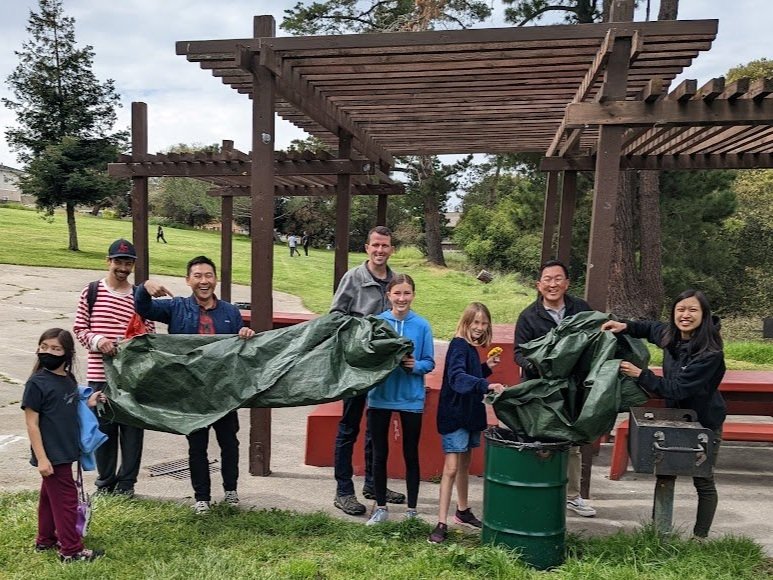
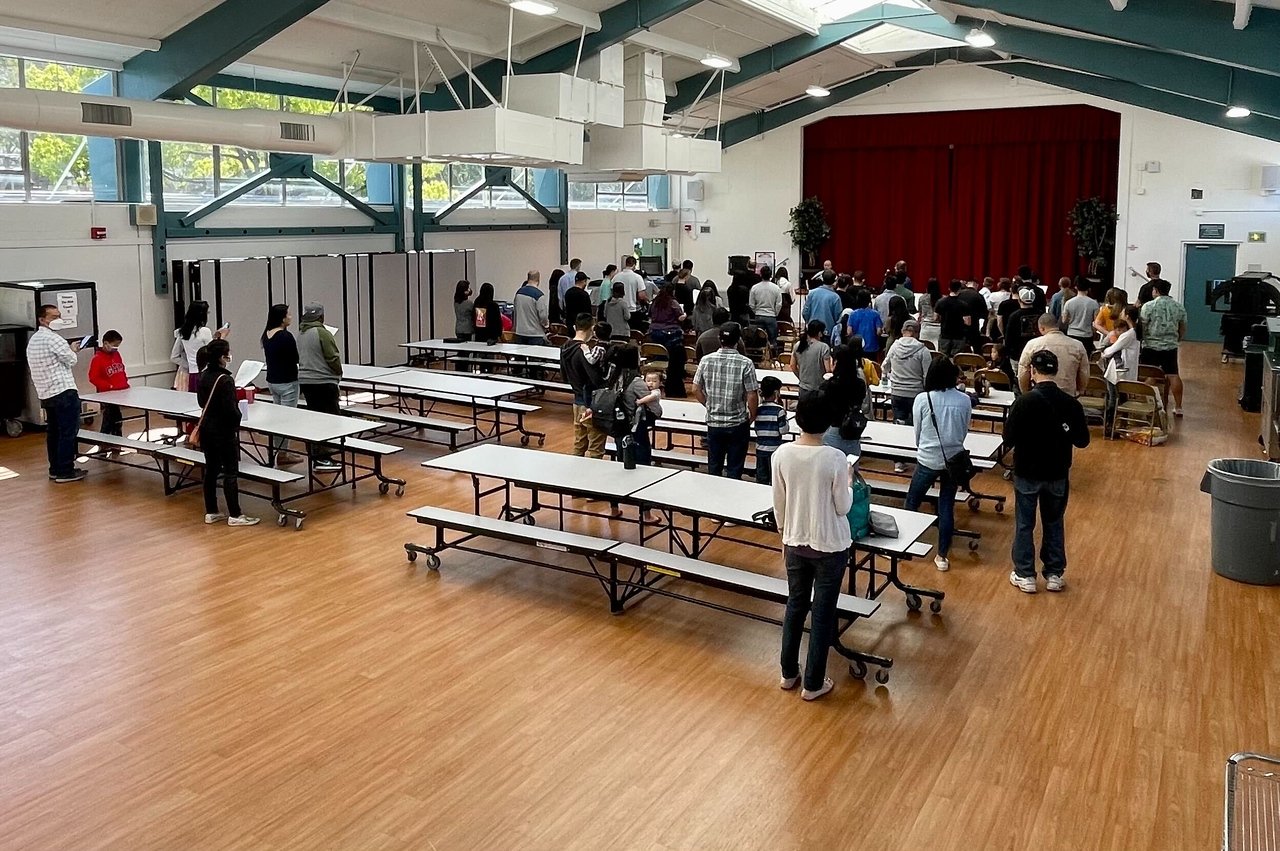
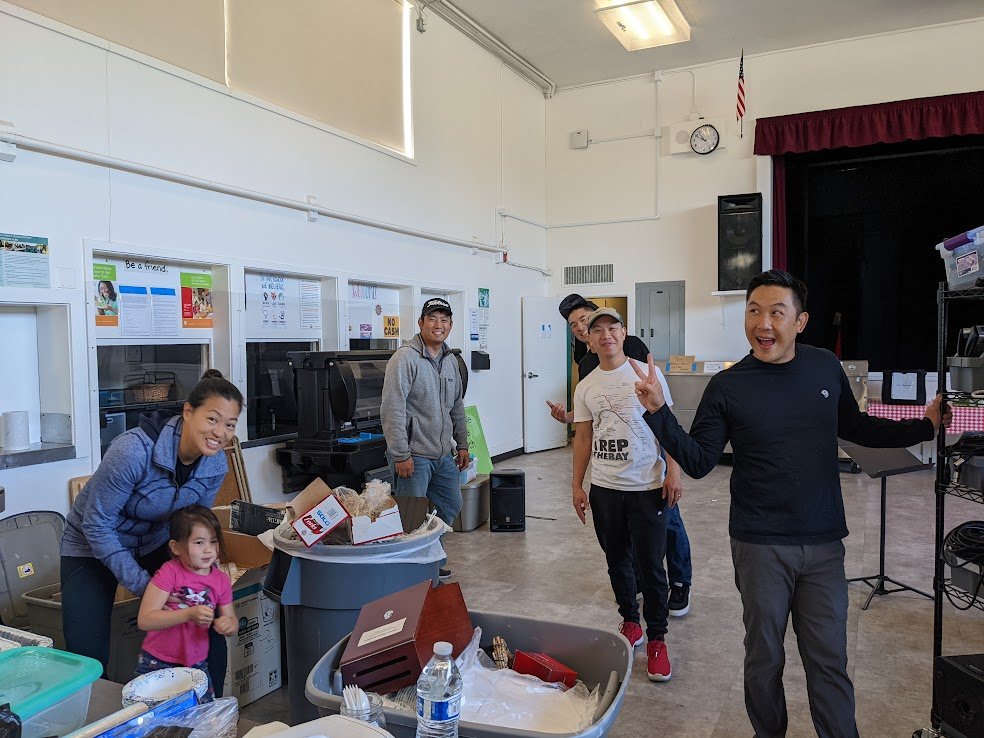
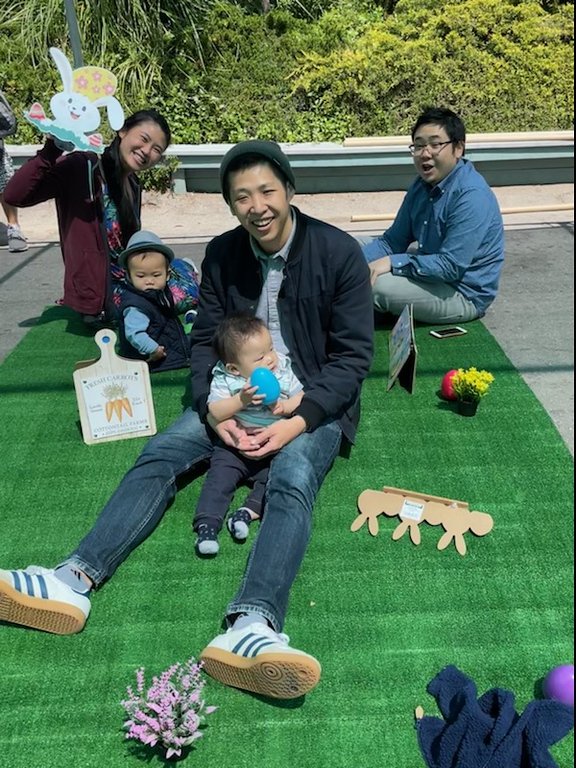

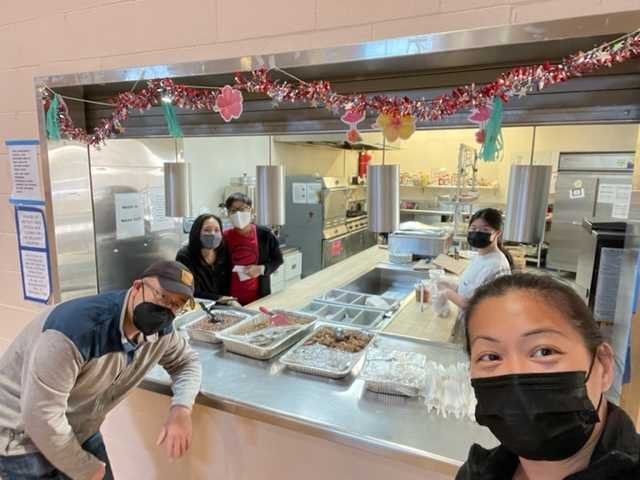

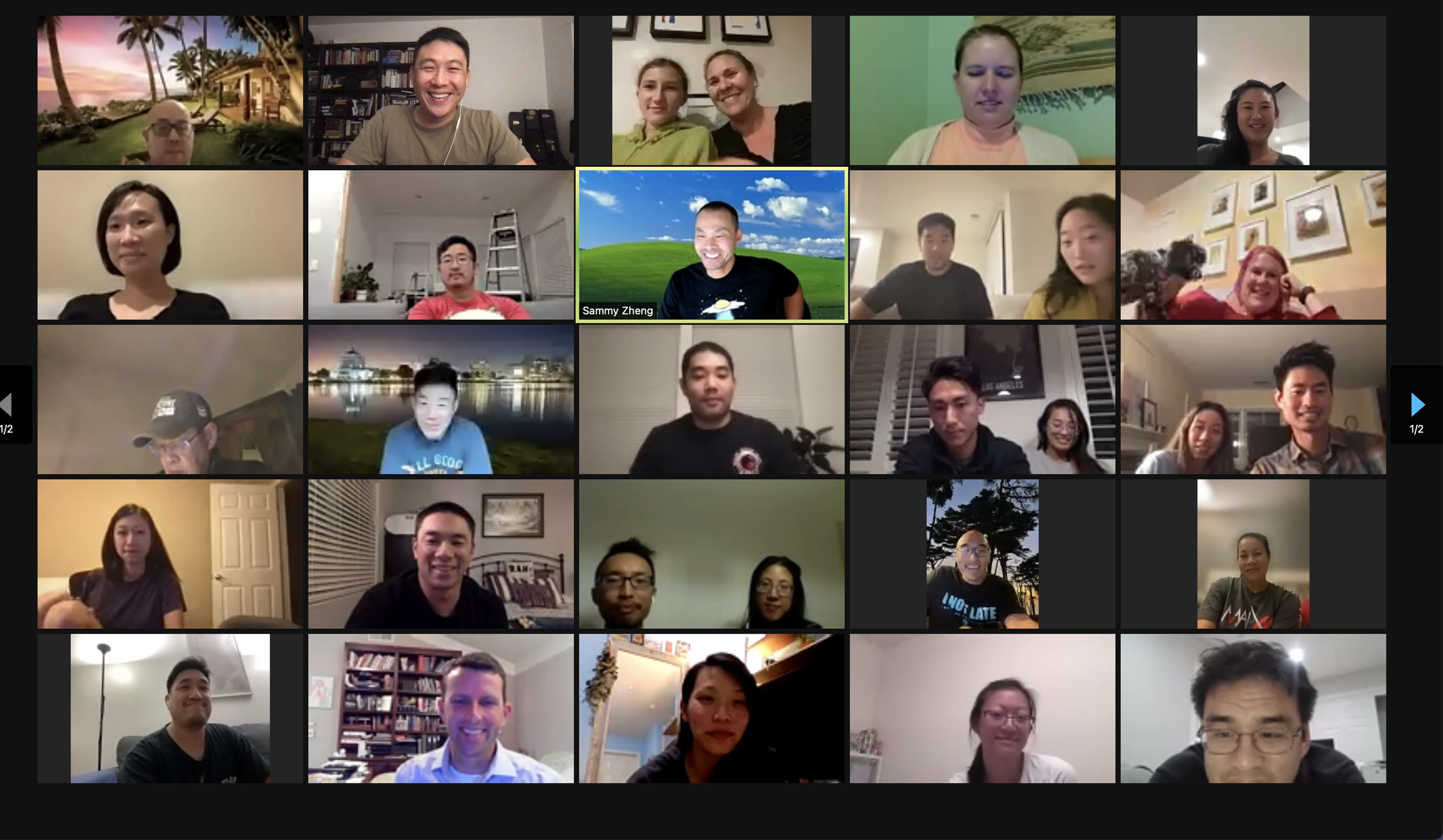
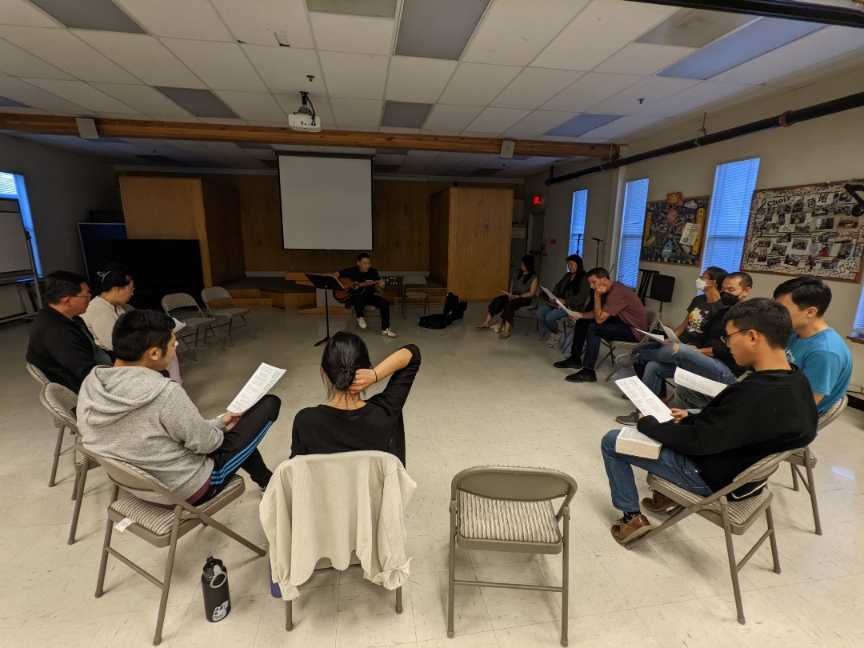
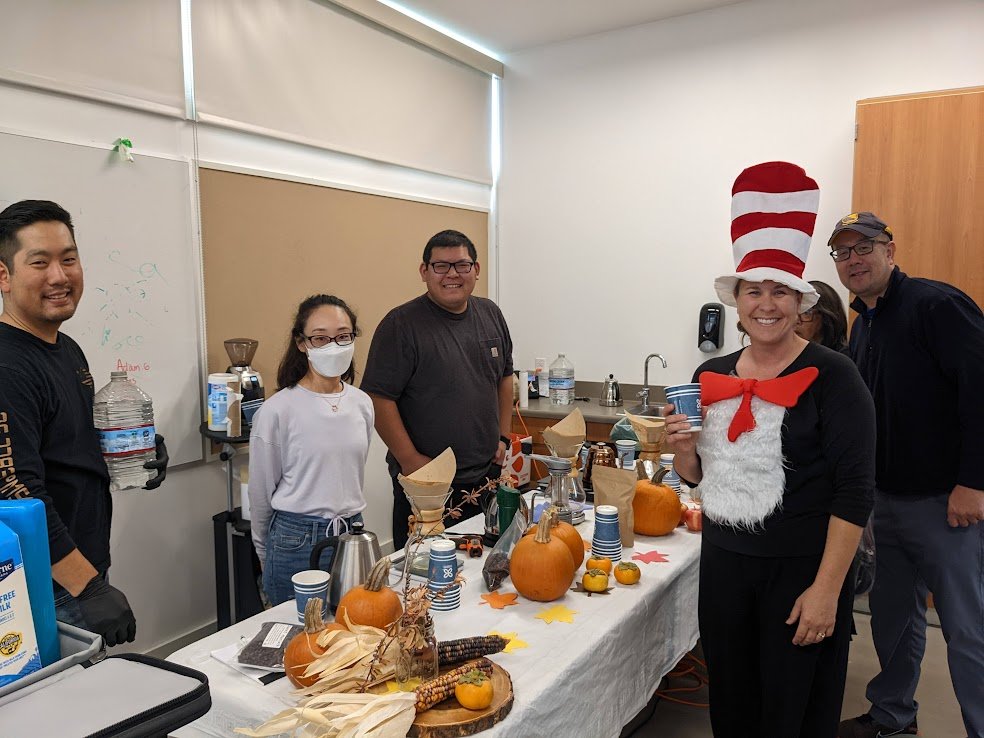

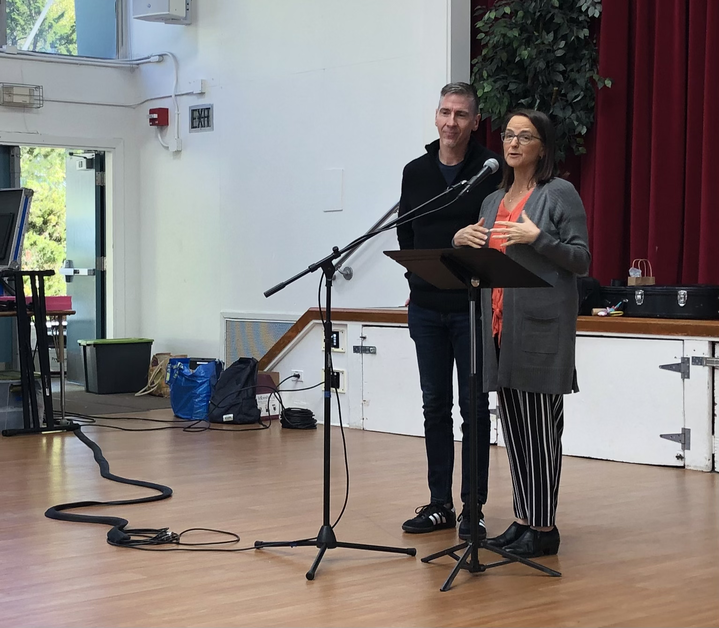
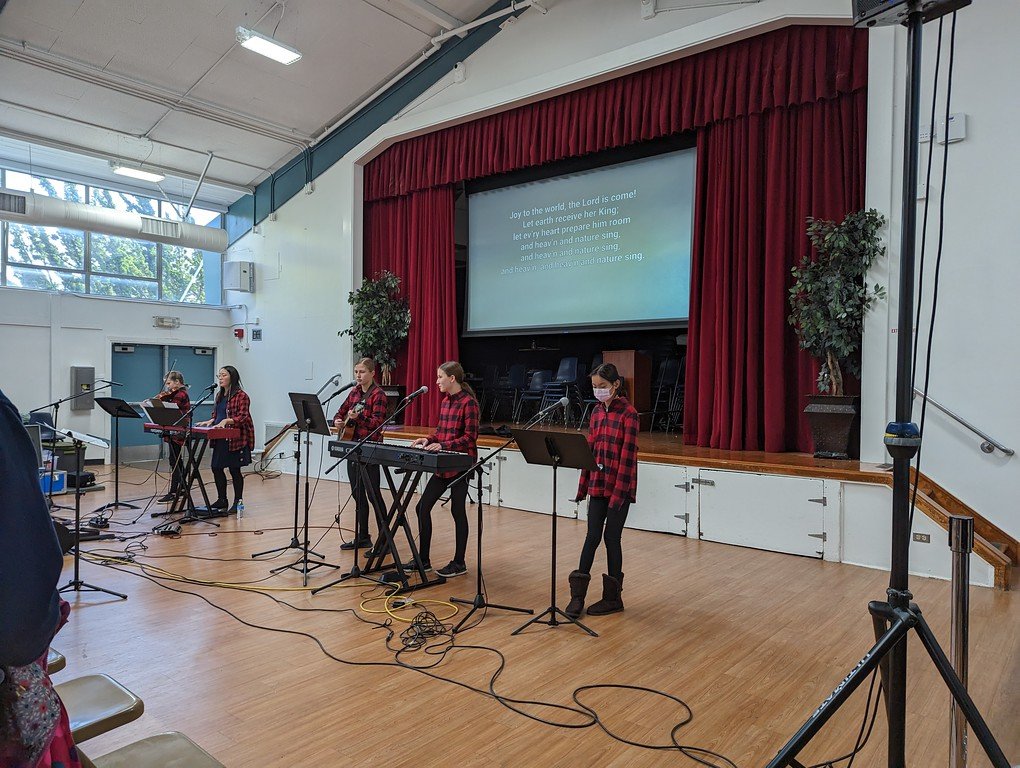
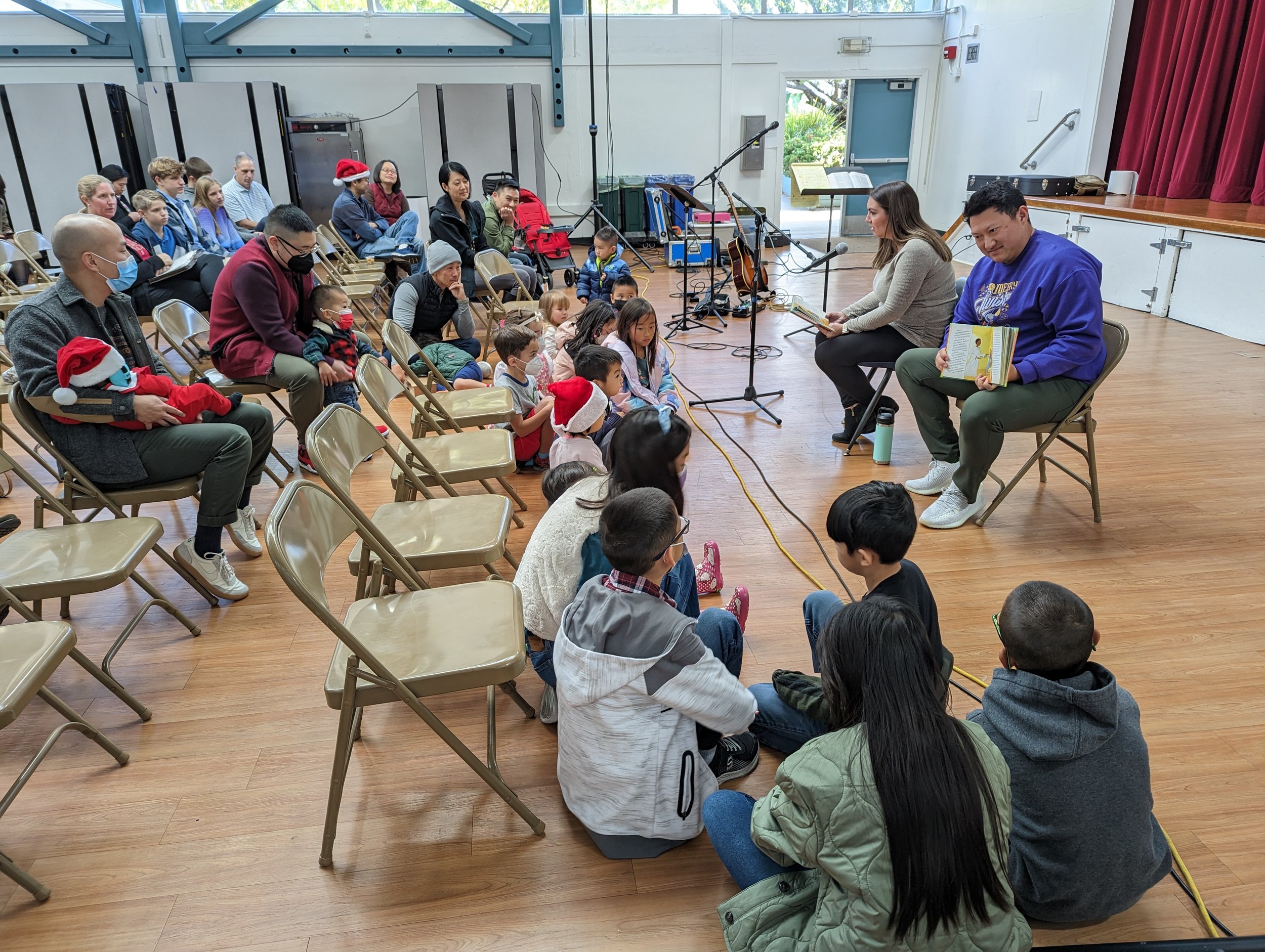
2022 has been a difficult year for Indelible Grace Church. We’ve gone through a great deal of turmoil and experienced some significant losses. Many of us have experienced the gamut of emotions in light of the troubles we’ve seen - sadness, anger, grief, discouragement, disappointment, relief, resignation, and more. We’ve had good reasons to feel those things, and some of us still need to process the things we’ve been through.
In this liminal season there’s a tendency to either dwell on the past with regret or look to the future with dread and anxiety. But we believe that IGC belongs to God and is shepherded by Jesus. And although he, too, is grieved by what we’ve experienced, we trust that he is present in our troubles and will redeem every painful moment in our history. Therefore, we have confidence that The Lord will use everything that has happened for our good, and that everything that happens in the next season will be with his good hand upon us.
During the summer we spent several weeks looking at Isaiah 42:1-10. The sermon series was an extended meditation on the person of Jesus, his ministry to the world, and his care for the church. In the final sermon in the series, I summarized one of the themes in the passage:
“Jesus is the Servant in this passage. He carries out his mission to make things right - for the people of God - and ultimately the world. There are two images we’re given in the beginning of the passage: the bruised reed and the smoldering wick. These are images of a people who are barely hanging on - through their own sin and rebellion, and also from the trauma of all that life has thrown at them. The Servant notices the reed and the wick and - with great love and tenderness and compassion - he mends and restores the bruised reed; he cups his hands around the smoldering wick to protect it and blows life into it so that it will burn with a bright fire once again.
“The servant in this passage is committed to his ministry. Jesus is the covenant of God for the people of God. We are defined by the covenant - the gospel. And we are equipped by God to do ministry.
“In these verses God says that he will do new things - in our lives and in this church. And he will do it for his glory, for his name’s sake, and for his reputation - because his glory is the most important thing in the universe. And our healing and our rebuilding and everything we do as a church should point back to God and be a testament to his goodness and wisdom and power.”
This is what we always want to be: a church that points the world to Jesus and testifies of the power of the Gospel. No matter what happens in the church and to the church, we must faithfully carry out the mission that has been given to us.
We’ve tried our best to do that this year. And though the grief we've experienced is real and valid, there is also much for us to be thankful for and celebrate. Among other things - we moved back indoors for our Sunday services, members were inducted, a girls discipleship group began, we had our first ever day of fasting and prayer, an interim pastor joined our staff, much of the church participated in a church-wide bible study in the book of Nehemiah, the Sunday morning prayer hour was restarted, we began a search for a new lead pastor, members stepped up to serve the church. And most importantly, Jesus was worshiped.
A bruised reed Jesus did not break. A faintly burning wick he did not snuff out.
And we can look back on this past year with gratitude for his faithfulness and for what he has done at IGC.
Pastor Wade
The End of Our Livestream
Our final livestreamed service will be on November 27.
When the pandemic began, the staff and volunteers immediately started working on plans for a livestream. With only a few days to plan and no playbook to reference, we made arrangements for streaming our services - something that has continued for almost every Sunday service since. Countless hours were spent by our team to work out the technical challenges of streaming from homes, other churches, community centers, garages, a public park, and a school (we met and filmed/streamed from a total of nine different locations over the course of two years). Even after we began meeting at Creekside Middle School in April 2022, we continued the livestream for the sake of those who were unable to join us in person. Much work has been done by a small group of faithful people to keep our livestream going. It has been a labor of love that has served our church well in a very unique season. After the livestream ends, our A/V team will be freed up to improve the technical aspects of our Sunday gatherings.
We understand that attending our worship services has been challenging for some folks - especially for those who have health concerns and needed to stay home for safety reasons. If you are in that group, we thank you for continuing to tune in and staying engaged with the life of the church as much as possible.
Now that we have a better idea of the rhythms of the pandemic, our understanding is that it is relatively safe to attend Sunday gatherings. As we've been doing from the very beginning of the pandemic, we will take into consideration advice from public health officials if there are more COVID surges. We will also continue to place speakers in the courtyard area for those who prefer to stay outdoors during service.
More important than safety reasons, we believe that meeting physically with other believers is good and necessary for the soul. God created us as physical creatures, with soul and body. And he created us to live in community - with others in tangible, visible ways. When we meet on Sundays, we see our fellow members. We see their children running around and being goofy. We taste the elements of communion. We hear fellow believers sing the songs that we need sung to us as much as we need to sing them to God. We hear others recite the creeds and confessions that we often struggle to believe ourselves. We can look at our friends in the eye and shake their hands and give them hugs. These things are not possible over a livestream. God did not intend for church to be experienced over the internet, and a livestream is a poor substitute for the biblical church model. As much as possible, we need to be wholly invested in the church community - mentally, spiritually, and physically.
We're commanded to not neglect meeting with fellow believers (Hebrews 10:25). Therefore, the end of the livestream is an invitation to re-engage with the IGC community on Sunday mornings. For more thoughts on the necessity of gathered worship, we recommend reading this short blog post by Dane Ortlund.
While we will stop streaming our services, we will continue to post our sermon audio on our website every week. They will also be available for download on any podcast platform.
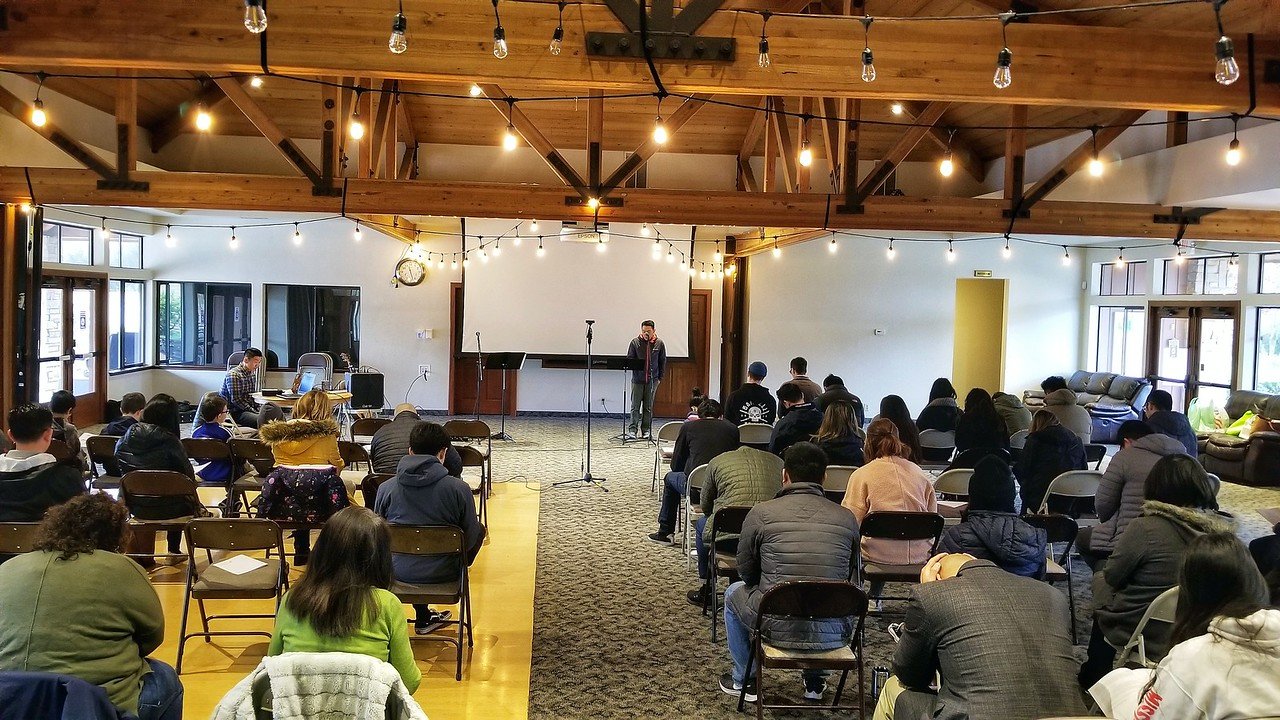
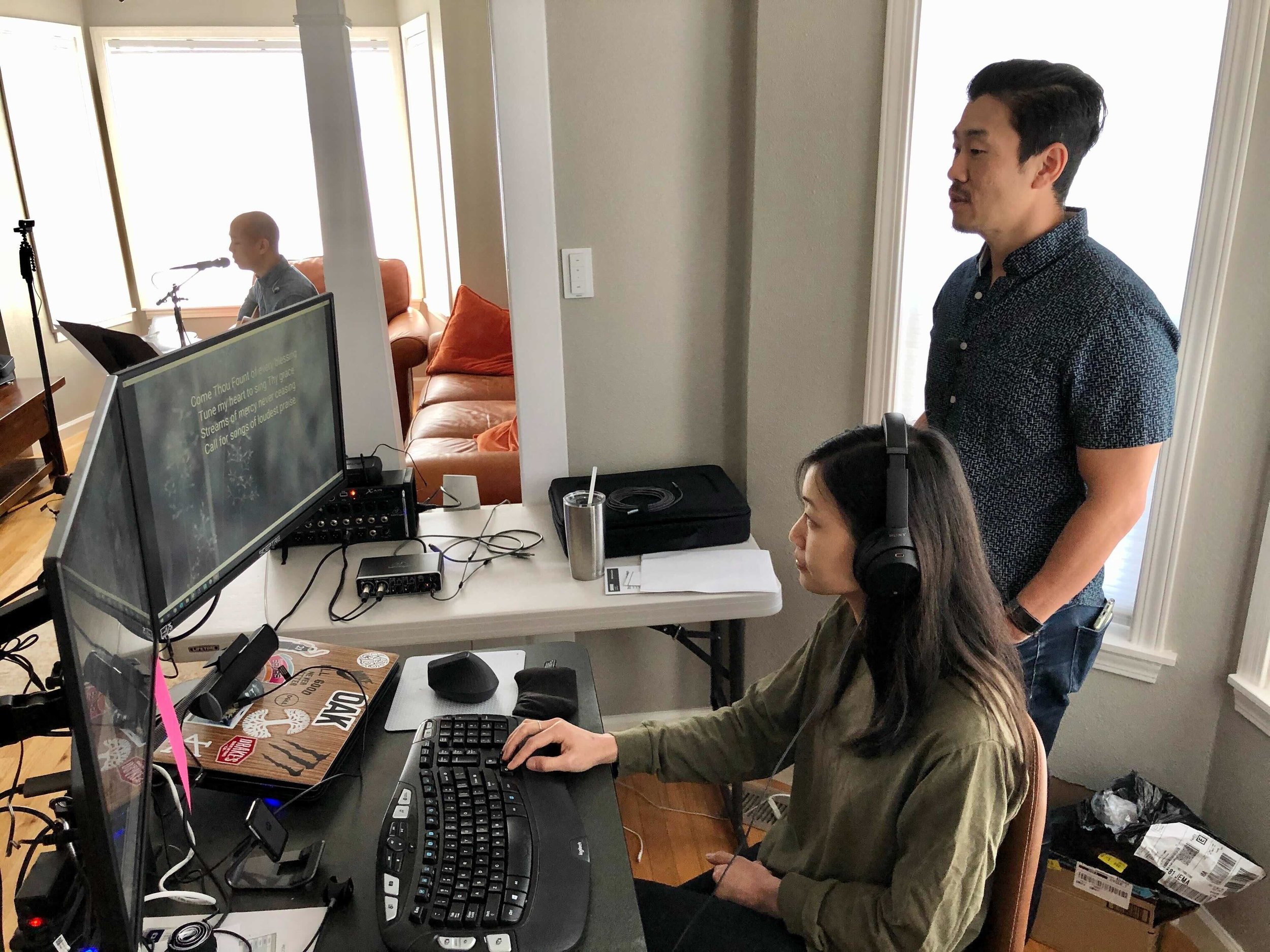
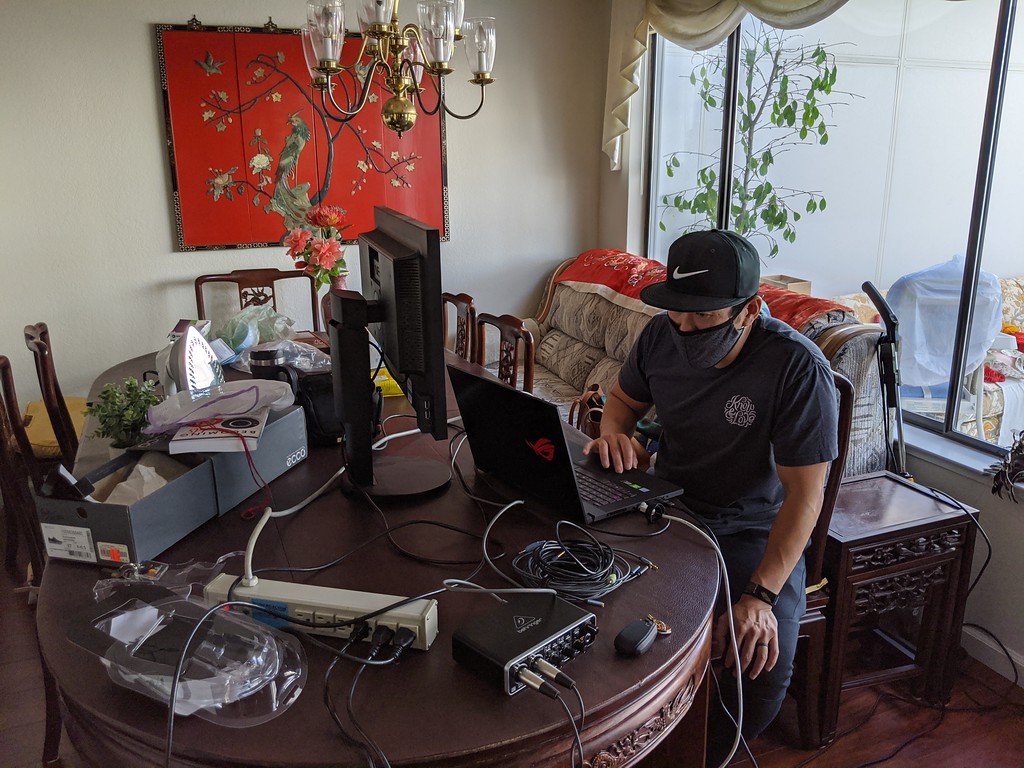
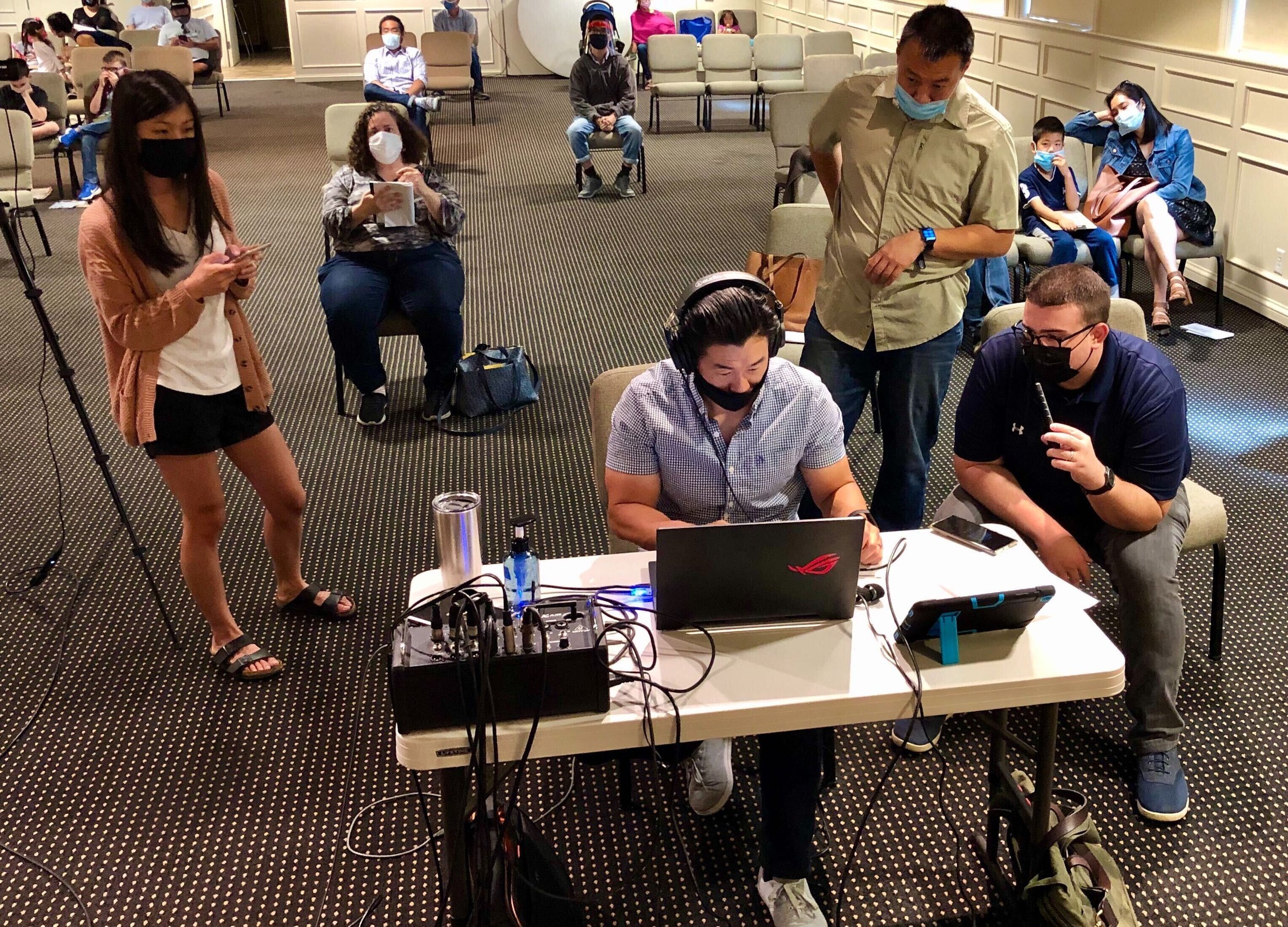
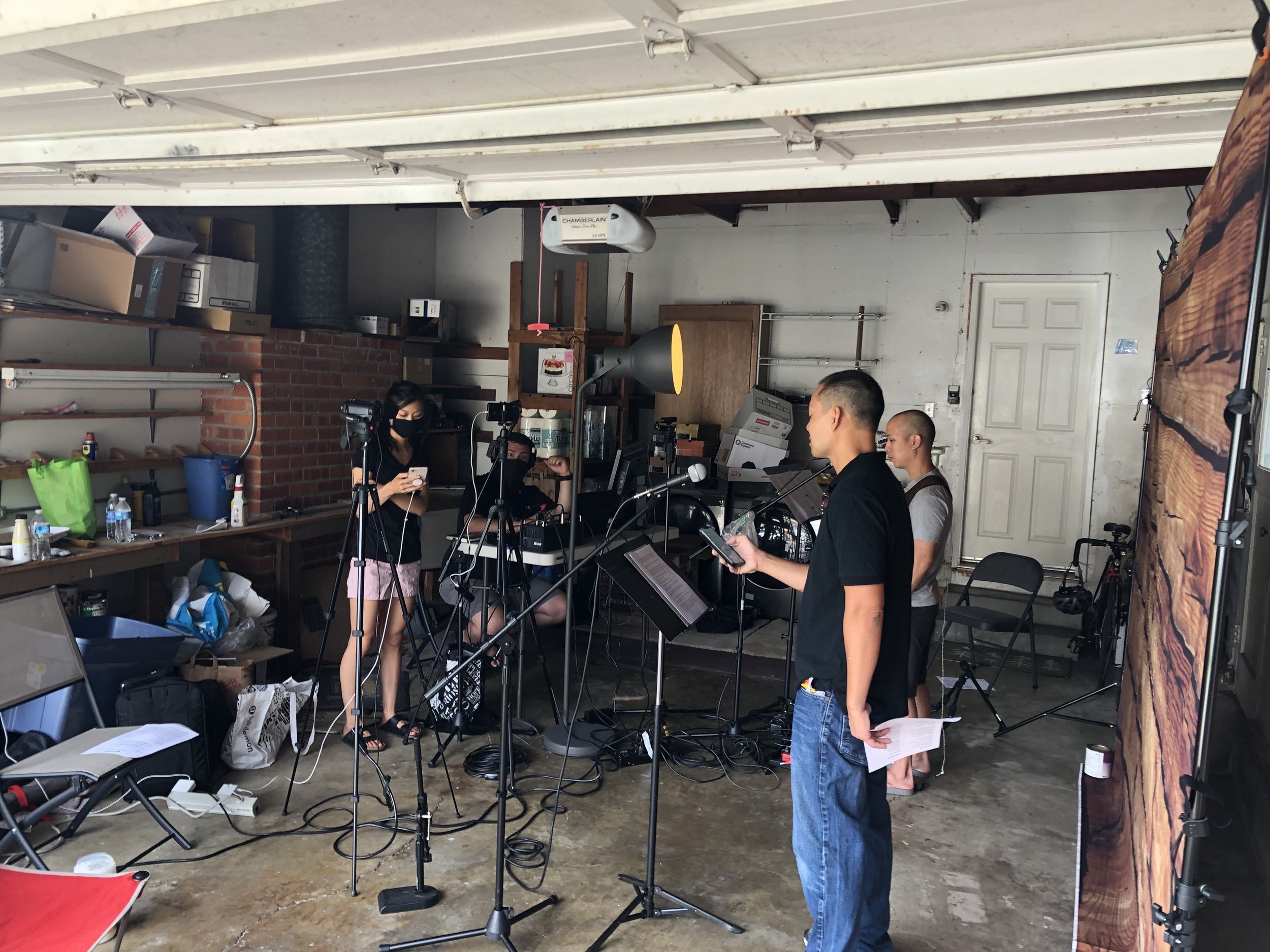
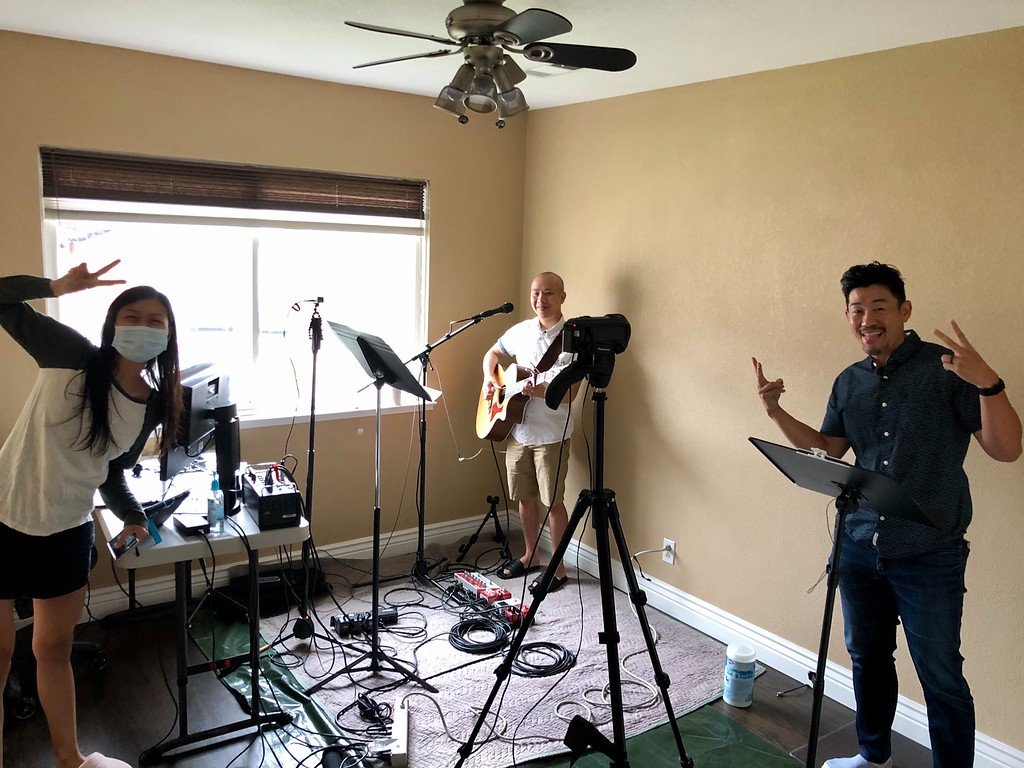


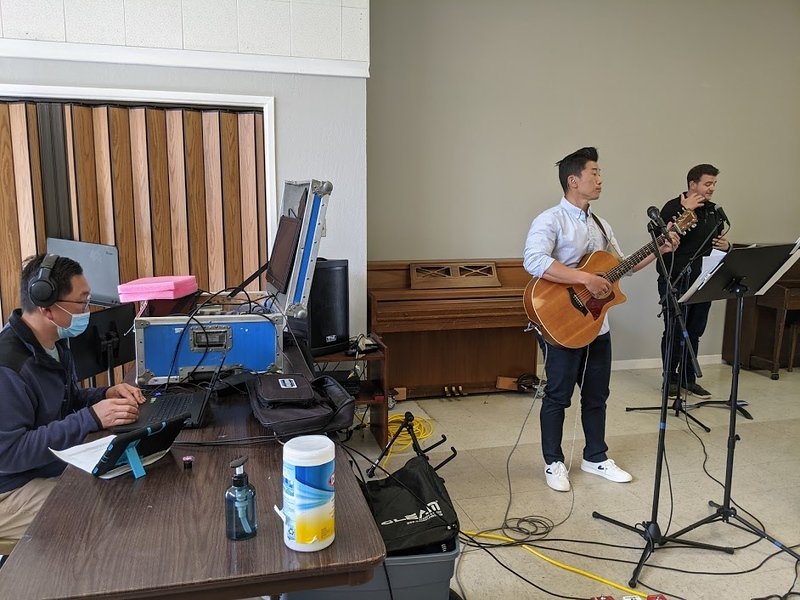

Our Last Sunday at San Felipe Park
This Sunday (March 27) will be our last at San Felipe Park. It has been over 18 months, in two different locations – first, near the parking lot, and then at the far end of the park. We had to figure out the logistics of "church at the park," not once a year as a special service, but every week. And every week, the Murry van was packed and driven to the park for setup. We established a livestream broadcast, first on Facebook Live, then on YouTube, all without reliable Wi-Fi. Then the parks system prohibited amplified sound, so we figured out how to use radios. We monitored the weather forecast each week, and got rained out several times. We are so thankful to all our volunteers
Few could have guessed that it would be over two years before we could return to an indoor facility, and not back to Marshall Elementary School, but to Creekside Middle School, starting April 3. It has been a very challenging season of ministry. But God is faithful and true. We look forward to reestablishing our worship service. It will be a time of rebuilding and recovering. But we look forward with faith and joy. We hope you join us at Creekside next week!
Returning Indoors
March 15 marked the two-year-anniversary of the pandemic for our church, and the beginning of our strange odyssey from Marshall Elementary to the clubhouse at Palomares Hills, the chapel at 3Crosses, and finally settling down at San Felipe Park. It's been a long, long journey. In all our wanderings, one constant remains: resilient joy. Resilience because God has sustained us and given us strength not to give up, and joy, not in wavering circumstances, but in Christ as our rock and fortress.
Now finally, starting April 3, we plan to move back indoors! Our new home will be at Creekside Middle School in Castro Valley. Creekside offers a significantly better facility than Marshall Elementary School – bigger space, more classrooms, as well as a shaded outdoor seating area. It is the answer to many, many prayers.
Our return indoors will be, in many ways, like a relaunch of our church. There are many aspects of worship service that will have to be worked out over the weeks. What will the audio/visual setup look like? Where will the children and nursery classrooms be located? We will troubleshoot these and other challenges as they arise. The plans are still in the early stages, and it will take a while before we "return to normal," but this will be an exciting time of reestablishing our worship service.
Praise God that He is ever faithful to his church. We realize this all the more deeply having gone through the trials and tribulations of the past two years. It is not by human strength or wisdom that the church is sustained, for all these will fail, but only by the Spirit of God. May we listen and follow where the Spirit leads.
First image: Creekside signage
Second image: staff visiting the MPR at Creekside
How do we know the Bible isn't an elaborate, made-up story?
One of the most frequent questions I get is: how do I know the Bible isn’t just some crazy story invented by a lunatic? Or, to put it more politely, how can we know the New Testament faithfully records historical events, and not the exaggerated tales of a new religious movement?
This is a profound question that touches on how we can know anything from the ancient world. There are many reasons why we should have confidence in the writings of the New Testament, among them: the early dating and the eyewitness accounts, but I want to focus on one particular line of evidence – non-Christian sources.
The Bible is actually not the only source of information we have on Jesus from the ancient world. There are about a dozen non-Christian writers who attest to various aspects of the New Testament account. For example, the Roman historian Tacitus, writing within a century of the events, referred to Jesus and his execution by Pontius Pilate. Pliny the Younger, a Roman governor, also writing in the same time, described the early Christians as worshiping Jesus as God. And finally, and most remarkably, the Jewish historian, Josephus, writing within 50 years of Jesus’ lifetime, outlined the basic facts of Jesus’ life – his claim to be the Messiah and his death by Roman crucifixion. Additionally, he wrote at length about other New Testament figures like John the Baptist, Pontius Pilate, and James, the leader of the church in Jerusalem. It’s important to note that all these writers were hostile to Christianity, and yet they affirm the essential storyline of Christianity. And there are numerous other non-Christian sources that give witness to the historical events of Christianity.
Whether we can trust the Bible is a foundational question. Left unaddressed, Christianity falls apart. However, there are numerous lines of evidence, both within the Bible, and also outside the Bible, that assure us of its historical reliability. This is the subject I hope to tackle for our first adult Sunday school class, once we return to Marshall Elementary School in the coming months. Other subjects I’d like to address in future classes are: Christianity and science; homosexuality and transgenderism; and a survey course on the whole Bible. Christianity is far more than cogent answers to these questions, but it is not less.
Pastor Michael
Image: Papyrus fragment of the Gospel of John, P52, dated to within the first century. John Rylands Library in England.
A Year of Remembrance
March 15 will mark the one-year anniversary of the start of the pandemic for our church and our strange odyssey away from our home at Marshall Elementary School. Starting with the clubhouse at Palomares Hills (pictured on right), we have moved locations eight times. We want to remember and reflect on this remarkable year. We are thankful for the many people who have served the church during this difficult year of ministry. Most of all, we give thanks to God for leading us and preserving us through the storm.
Reflections by Tracy Ong
To be honest, much of last year feels like a blur to me, haha. But, there are some memories I will always remember. I remember the confusion and panic when Marshall Elementary told us we couldn't meet there anymore and every single time there was a problem with the livestream (which happened frequently in the beginning!). I remember carefully marking up the many pages of protocols issued by the county and state and writing ones for IGC. I remember recruiting volunteers for my reopening task team, which kind of felt like enlisting people to join the army. I remember participating in our church's mask-making assembly line, which made me feel like I was a part of Blue Star Moms. In particular, I remember one Sunday at 3Crosses when the Internet didn't work. My brain was scrambling to think of what we could do. We resorted to using Zoom on my phone to stream the service, and I remember feeling bad that my phone kept moving and parts of my head/face kept showing up on the screen :p
I remember being grateful for and in awe of the pastors and elders and how they shepherded (and continue to shepherd) our church through this pandemic. It has not been easy to lead a church during this time, and our pastors/elders have done so with much grace and faithfulness. I remember the spirit of teamwork and camaraderie we shared, and that even though we didn't agree on everything, we had discussions that led to decisions we all supported. I will always remember their love for the church, their desire to honor God in every decision we made, and their dependence on Him. I will say it again and again: we have amazing, God-fearing leaders, guys.
Most of all, I remember God's provision and goodness to us. Without a doubt, He has led us this whole time and sustained us - and He will continue doing so! People have faithfully stepped up to volunteer and have generously given/lent us their cars, equipment, homes, and time. I remember the staff at 3Crosses, who were so hospitable and accommodating and even prayed for us when we visited. I remember the encouraging emails I received. I remember how crazy it was when HARD issued a permit for us to have service at San Felipe. So many small miracles. God is able. Jehovah Jireh. God is good. God has been, is, and will continue to be with us. All glory be to Him!
Reflections by David Yi
A year ago (!), when I was unofficially deputized as part of the IGC LiveStream Geek Squad™, I remember the excitement, anxiety, and pressure of producing a livestream each week. There was this feeling that we could provide this small gift to people who had suddenly been stripped of the presence of their brothers and sisters. For me, I had the livestream crew in my house each Sunday, and just seeing them in the flesh each week felt like a (somewhat guilty?) privilege. But we missed the singing, the communion, the fellowship, the faces. We were just coping as a church.
In the midst of the learning curve and technical challenges of live-streaming (and caring for a newborn), one of the most memorable "coping" mechanisms for me was the Saturday night IGC Counter-Strike Crew®. 1) We got to have some community over headsets and first person shooters, and 2) We put our livestream rig through its paces in a GPU-intensive, bandwidth-sensitive stress test. 2 birds, 1 stone! So big shout out to the CS-GO squad for their contribution to my coping, and the success of our livestream!
For sure, I'll never take for granted the physical gathering of the church again. In 1939, in an underground seminary in Germany, Dietrich Bonhoeffer wrote, "The physical presence of other Christians is a source of incomparable joy and strength to the believer... The believer feels no shame when he yearns for the physical presence of other Christians... It is easily forgotten that the fellowship of Christian brethren is a gift of grace, a gift of the Kingdom of God that any day may be taken from us. Therefore, let him who until now has had the privilege of living a common Christian life with other Christians praise God’s grace from the bottom of his heart. Let him thank God on his knees and declare: It is grace, nothing but grace, that we are allowed to live in community with Christian brethren." I love y'all and thank God for our church.
Vision for Post-Pandemic Church
At our February 21 congregational meeting, we discussed the future of our church, particularly as we emerge out of the pandemic. Obviously, no one knows the exact shape of what will happen, but we can begin to make preliminary plans. Two points are significant:
(1) Philosophy on church gatherings
Through the duration of the pandemic, we will meet together in whatever setting brings the most people together. For now, that means holding worship service outdoors, at a public park. And so, we plan to continue meeting at San Felipe Park in Hayward through 2021. As people are vaccinated and infection rates recede, and as people feel safe, we will make plans to return to indoor worship.
(2) Eventually, we will turn off the livestream
This will be an open and ongoing conversation, but we believe that participating in the worship service through the livestream is an emergency accommodation, for the pandemic only, and unsuitable for regular church life. We are committed to maintaining the livestream through the pandemic. But eventually, we will be able to say the health threat is over. And while it may be convenient and efficient, the livestream is not conducive to deep engagement and deep belonging in congregational life. Many people have expressed feeling disconnected through this experience of "digital church." This will be a conversation we will have together as a church, as we look to a post-pandemic future.





